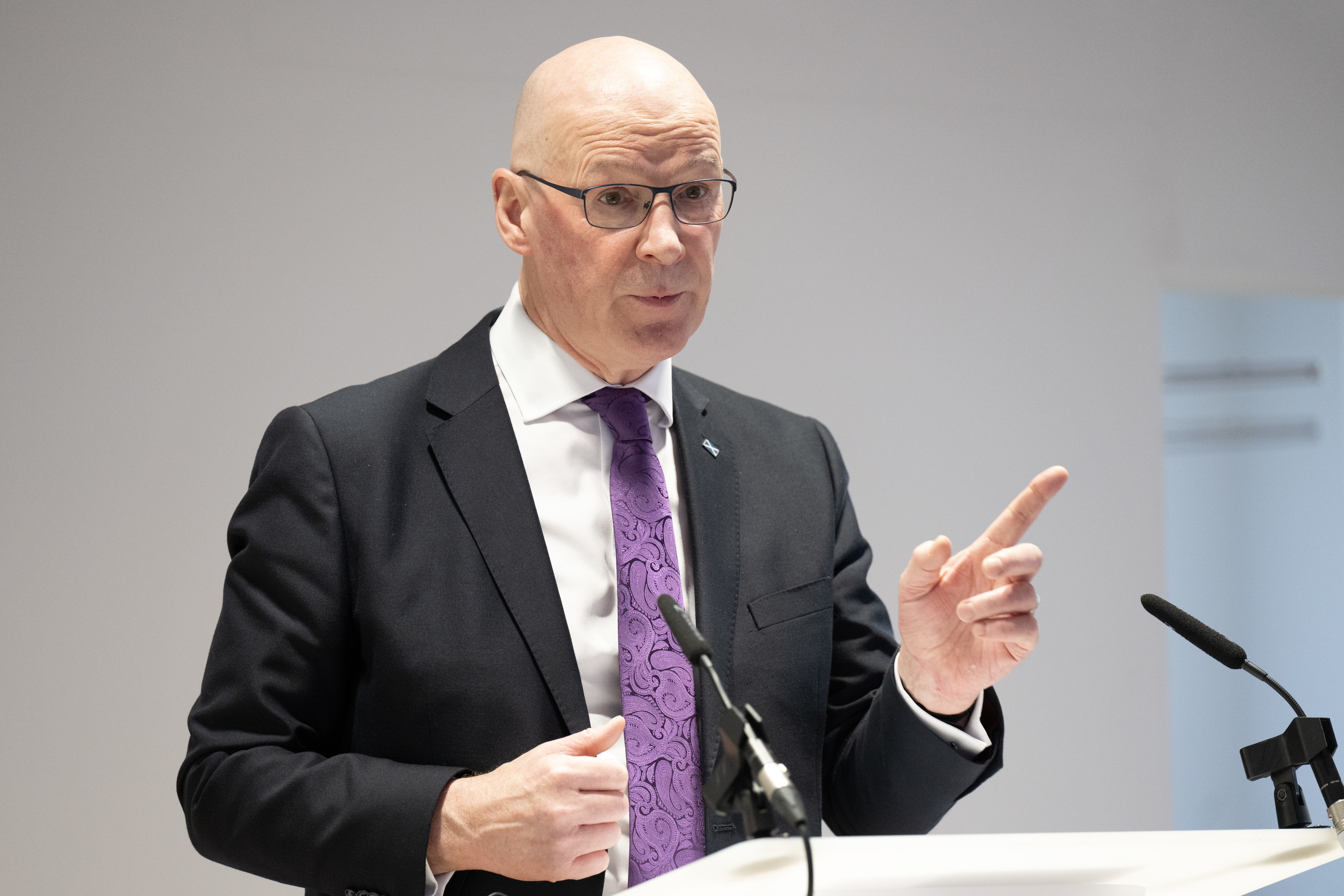Remain is in the past, rejoining EU is ‘Scotland’s best hope’, Swinney to say
The First Minister will stress the need for migration in Scotland due to the ageing population.

Your support helps us to tell the story
From reproductive rights to climate change to Big Tech, The Independent is on the ground when the story is developing. Whether it's investigating the financials of Elon Musk's pro-Trump PAC or producing our latest documentary, 'The A Word', which shines a light on the American women fighting for reproductive rights, we know how important it is to parse out the facts from the messaging.
At such a critical moment in US history, we need reporters on the ground. Your donation allows us to keep sending journalists to speak to both sides of the story.
The Independent is trusted by Americans across the entire political spectrum. And unlike many other quality news outlets, we choose not to lock Americans out of our reporting and analysis with paywalls. We believe quality journalism should be available to everyone, paid for by those who can afford it.
Your support makes all the difference.Rejoining the European Union is Scotland’s “best hope for a more prosperous future”, John Swinney is expected to say in a speech on Wednesday.
The First Minister will describe the drive to remain in the bloc – the side which lost the 2016 referendum – as “the past”.
Successive Scottish governments – under the stewardship of the SNP – lobbied against leaving the EU, with the party making returning to the bloc a key promise in its drive for independence.
Simply put, remain was the past, rejoin is Scotland’s best hope for a more prosperous future
Mr Swinney is also expected to take aim at the economic issues facing the UK, with pressure mounting on the Government from increased borrowing costs and turbulence in the financial markets, saying it is time for Scotland to “think big”.
The First Minister is expected to say in his speech in Glasgow on Wednesday that the biggest challenge facing Scotland is its ageing population, stressing the need for a migration system which fills gaps in the labour market and support public services.
“In recent years, nothing has impacted migration in Scotland more than the disastrous decision to leave the EU,” he is expected to say.
“And the current dominant political narrative at Westminster, which in turn drives policy choices within the UK Government, is only making matters worse, impacting business, stifling growth and making it more difficult for our NHS to recruit staff.
“If we are to make the most of Scotland’s economic opportunities, we need an immigration system that understands that Scotland is different from the UK as a whole.
If we are to ensure that Scotland’s economy performs to its full potential, I believe it is time for Scotland to think big, so we can act bold
“But ultimately, Scotland is a European nation and I believe that our future lies within the European Union and that rejoining the EU should be our clearly stated goal and national mission.
“My aim is not to look backwards in order to refight the Brexit debate.
“Brexit, for all its folly, has happened. Instead, my wish is that we turn our eyes to the ground that lies ahead and determine to choose a new path, and a different course.
“Simply put, remain was the past, rejoin is Scotland’s best hope for a more prosperous future.”
Turning to the economic situation in the rest of the UK, Mr Swinney will say: “The skies are darkening over Westminster as economic confidence in the Labour government ebbs away – we urgently need a new direction from the UK Government.
“But if we are to ensure that Scotland’s economy performs to its full potential, I believe it is time for Scotland to think big, so we can act bold.
“Our energy potential is one of our greatest opportunities.
“If our energy wealth results in a supply chain in Scotland in manufacturing, research and development, and results in lower energy prices for households and businesses, an economic paradigm shift becomes possible.”